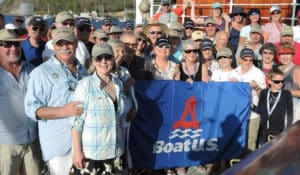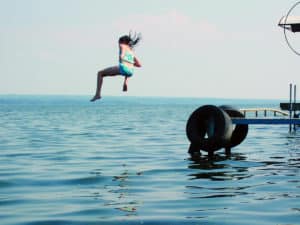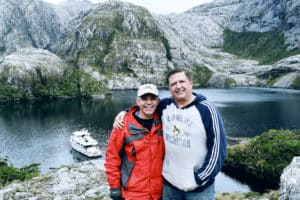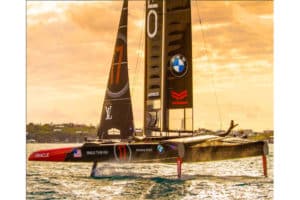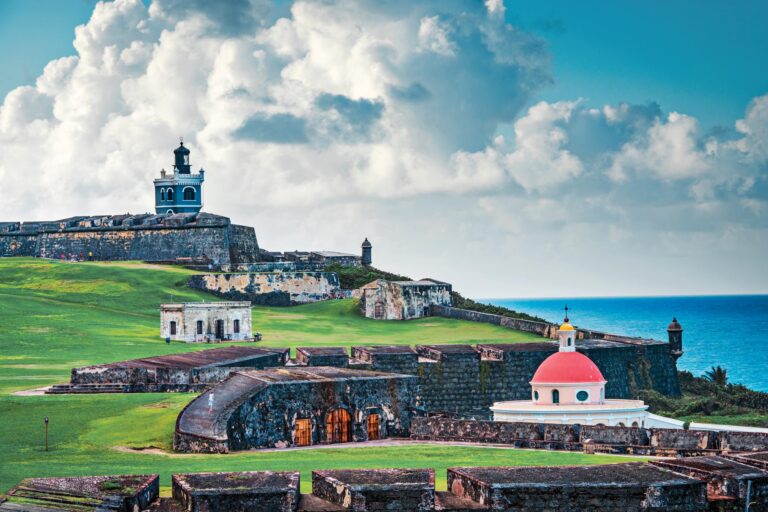Tropical cyclones rotate counterclockwise in the northern hemisphere and clockwise in the southern hemisphere. This rotation is the result of the Coriolis effect acting upon:
A) cold, sinking air
B) warm, rising air
C) moist, falling air
The Aleutian and Marianas islands are the result of what specific type of plate convergence?
A) oceanic vs. continental
B) oceanic vs. oceanic
C) continental vs. continental
You are marooned on an unknown island using a salvaged radio to listen to a show broadcast from Greenwich, England. The sun is directly overhead when the DJ announces that it is 10 a.m. You use this information to calculate your approximate longitude to be:
A) 60 degrees west of Greenwich
B) 30 degrees east of Greenwich
C) 25 degrees west of Greenwich
Think you have what it takes to compete in the 2014 National Ocean Sciences Bowl? These are the types of questions used to quiz high-school students on information about the ocean relating to biology, chemistry, geography, geology, marine policy, physical oceanography, social sciences and technology.
Regional winners are now being selected for the May final, which will be held this year in Seattle, Washington. The goal of the competition, put on by the Consortium for Ocean Leadership, is to enhance science teaching nationwide along with public understanding and stewardship of oceans.
Teams have four or five teens along with one adult coach. If you answered “B” to each of the three questions above, you likely have the smarts needed to compete.
Learn more about the regional qualifying rounds at www.nosb.org.

